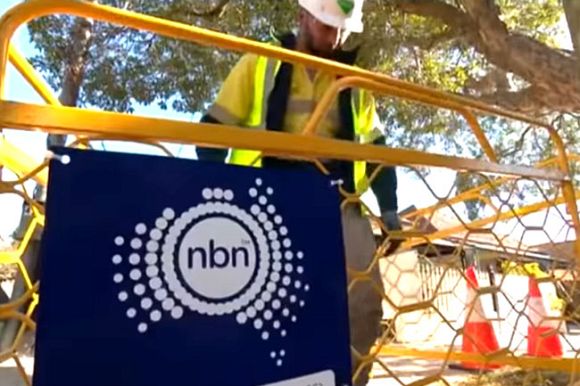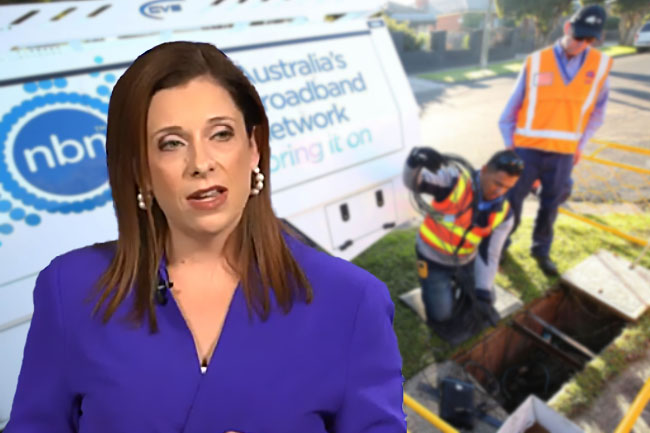Australia's national broadband company is rising above financial challenges amid a growing demand for fibre connection, writes Paul Budde.
NBN CO HAS FACED significant challenges in balancing its financial performance despite making strides in operational efficiency and revenue growth. The company's financial results for FY24 reveal a complex landscape where increased revenue and reduced operational costs are overshadowed by a substantial net loss.
However, NBN Co remains committed to its long-term infrastructure goals, particularly the nationwide fibre upgrade program, which continues to see growing demand despite falling slightly short of initial expectations.
Financial overview
In FY24, NBN Co reported a net loss of $1.18 billion — a slight increase from the previous year's loss of $1.1 billion. This loss occurred despite a 4% rise in total revenue, which reached $5.5 billion and a 9% increase in earnings before interest, taxes, depreciation, and amortisation (EBITDA) to $3.93 billion.
The company's operating expenses also saw a 5% decline, down to $1.712 billion, which was attributed to improvements in operational efficiency, particularly in reducing truck rolls and network maintenance costs.
NBN Co's average revenue per user (ARPU) remained stubbornly stable at $47, even after implementing price increases in December. This stability in ARPU reflects a broader challenge for NBN Co — maintaining profitability while managing costs and continuing to invest in infrastructure upgrades.
At the same time, as I have argued many times before, the national social and economic importance of the NBN is more important than its financial results.
Fibre upgrade program
A significant aspect of NBN Co's strategy has been its fibre upgrade program, which aims to transition customers from older technologies like Fibre to the Node (FTTN) and Fibre to the Curb (FTTC) to Fibre to the Premises (FTTP).
As of June 2024, NBN Co successfully upgraded 375,000 premises, with 269,000 of these upgrades occurring in the last financial year alone. Although this figure falls short of the initially projected 402,000 conversions, the company has maintained a steady upgrade rate, averaging around 7,000 upgrades per week, with peaks of up to 10,000 in some weeks.
The demand for fibre connections is growing, with nearly 50% of new orders opting for higher-speed plans. This trend is particularly strong among small to medium-sized businesses, which are increasingly seeking reliable, high-speed broadband solutions.
Operational efficiency and cost management
One of the key drivers behind NBN Co's improved financial performance has been its focus on operational efficiency. The company has invested heavily in network data analytics, enabling it to predict and prevent service issues before they occur.
This proactive approach has led to a significant reduction in truck rolls, with 100,000 fewer service calls in FY24 compared to the previous year. These efficiencies have been crucial in controlling costs, particularly in a challenging economic environment with rising inflationary pressures.
While progress has been made, there is still room for improvement. There is the importance of continued collaboration with Retail Service Providers (RSPs) to enhance customer experience and reduce unnecessary service calls. NBN Co's capital expenditure increased by 28% to $3.762 billion in FY24, driven largely by the ongoing Fibre Connect program and fixed wireless network upgrades.
As we have foreshadowed before, changing from the FTTN strategy under the previous government to a belated FTTC/FTTH strategy is increasing the overall costs of the NBN rollout.
Future prospects
Looking ahead, NBN Co remains focused on expanding its fibre network and improving its service offerings. The company expects that by the end of 2025, 90% of its fixed footprint will be capable of delivering near-gigabit speeds, with 99% of the network offering speeds of at least 50Mbps. These upgrades are crucial as NBN Co faces increasing competition in the broadband market, particularly from mobile and fixed wireless providers.
Despite the challenges, NBN Co's leadership remains optimistic about the company's future. The completion of the Government's $19.5 billion loan repayment marks a significant milestone, and NBN Co is now fully funded by private debtors and government equity.
This stable financial position, combined with the company's critical role in Australia's telecommunications infrastructure, has helped secure favourable financing rates.
Moreover, NBN Co is exploring new revenue opportunities within its existing remit, particularly in new housing estates and business services. While the company is not currently pursuing additional revenue streams outside its core operations, it remains confident in the growth potential of its existing services.
Paul Budde is an IA columnist and managing director of independent telecommunications research and consultancy Paul Budde Consulting. You can follow Paul on Twitter @PaulBudde.
Related Articles
- NBN lags behind New Zealand in latest OECD broadband rankings
- It's confirmed: Fibre offers the best NBN infrastructure
- High demand sees NBN market booming
- NBN Co bombshell: High-speed, affordable broadband at last
- NBN making progress but still paying for political footballing
 This work is licensed under a Creative Commons Attribution-NonCommercial-NoDerivs 3.0 Australia License
This work is licensed under a Creative Commons Attribution-NonCommercial-NoDerivs 3.0 Australia License
Support independent journalism Subscribe to IA.














